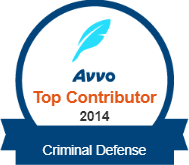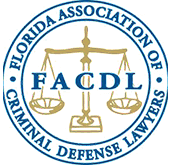The Prescription Drug Monitoring Program is codified at § 893.055, Fla. Stat. (2022). This law includes definitions of prescription drug abuse and defines several offenses involving prescription drugs. If you are facing charges of possessing a controlled drug without a valid prescription, it’s important to talk to Saint Lucie criminal lawyer Jeffrey H. Garland, Esq. as soon as possible.
Florida’s Prescription Drug Monitoring Program
Florida’s prescription drug monitoring program is named the Electronic Florida Online Reporting of Controlled Substance Evaluation Program (E-FORCSE). It is an electronic database used by healthcare practitioners throughout the state that collects and tracks information about prescription drugs that are dispensed and prescribed in Florida. The system identifies individuals who obtain controlled substances from multiple providers, calculates the dosage they might be using each day, and tracks whether they have obtained prescriptions for other drugs that could have dangerous interactions with their medications. Law enforcement can use data from the system to track prescription drugs back to the prescribing doctors.
Possession of Controlled Drugs Without a Prescription
Under § 893.13(6), Fla. Stat. (2022), it is illegal for someone to possess a controlled drug in Florida without having a valid prescription from a licensed physician. If you are found to have a controlled medication without a valid prescription on your person or within your vicinity, you could be charged with a possession offense. This offense is a third-degree felony that carries a maximum of five years in prison and/or a $5,000 fine.
Trafficking in Prescription Drugs
If you are caught with 10 grams or more of a Schedule I, II, or III controlled drug without a valid prescription as listed in § 893.03, Fla. Stat. (2022), you can be charged with a first-degree felony and face up to 30 years in prison and a fine of $10,000. Florida deems possession of over a threshold amount of prescription drugs possession with the intent to distribute. One issue with this is that when prescription drugs are weighed, law enforcement doesn’t account for the weight of inert substances that might be included in the pills.
If you are caught with prescription drugs without a valid prescription that you have brought into Florida across state lines, you can be charged with a second or third-degree felony based on the drug’s schedule. A second-degree felony carries the potential for 10 years in prison and a $10,000 fine.
Get Help From a Saint Lucie Prescription Drug Lawyer
The following are examples of defenses that might be available to a charge of possessing or trafficking in prescription drugs without a valid prescription:
- No reasonable suspicion for your stop
- Lack of probable cause to search
- You had a valid prescription
- You had loose pills but had a valid prescription for them
- The alleged controlled drugs were something other than what the police believed
- The weight alleged by the police and prosecutor was wrong
Attorney Jeffrey H. Garland, Esq. has more than four decades of experience and has helped many clients to secure favorable plea agreements, outright dismissals of the charges against them, and acquittals. Contact us today to schedule a consultation by calling us at (772) 489-2200.






